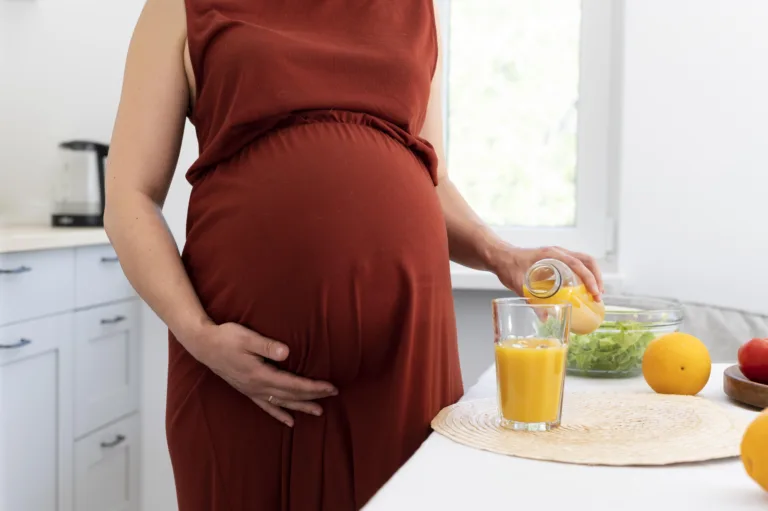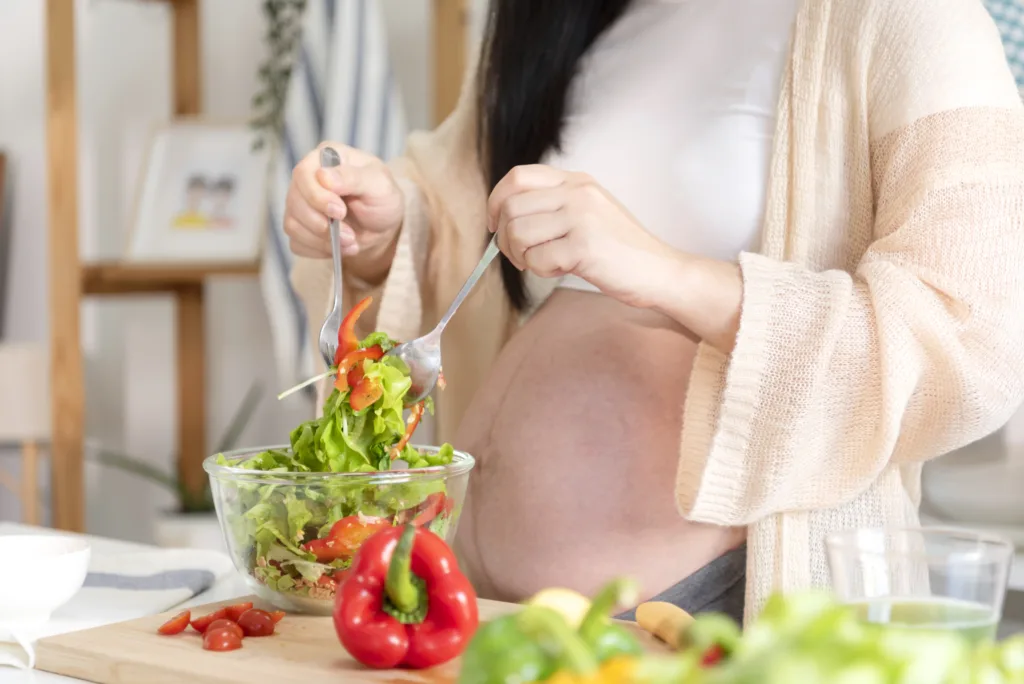
10 Foods to Keep Your Pregnancy Healthy
Pregnancy is one of the most beautiful experiences a woman can have, but it can also be overwhelming. It’s essential to take care of your body during this time, and your diet is a crucial part of that.
Eating healthy is a must during pregnancy to ensure that you and your baby receive all the necessary nutrients. Here are ten foods that you should incorporate into your diet to keep your pregnancy healthy.
The Significance of a Solid Eating routine During Pregnancy
A solid eating routine during pregnancy is imperative for both the mother and the child. The baby relies entirely on the mother’s diet for its growth and development.
Eating a well-balanced diet can reduce the risk of complications during pregnancy, such as preterm labor or preeclampsia. It can also prevent birth defects and promote healthy fetal growth. A healthy diet can also help the mother maintain a healthy weight and prevent gestational diabetes.
Foods to Avoid During Pregnancy
There are certain foods that pregnant women should avoid altogether to prevent any complications. Some of these foods include raw or undercooked meat, fish with high levels of mercury, unpasteurized dairy products, and raw eggs. These foods can contain harmful bacteria that can cause food poisoning or harm the baby’s development.
Foods to Incorporate into Your Pregnancy Diet
A healthy pregnancy diet should include a variety of foods that provide the necessary nutrients for both the mother and the baby. Leafy greens such as spinach and kale are excellent sources of folic acid, which is essential for fetal growth and development.
Whole grains like oatmeal and brown rice are rich in fiber, which can help prevent constipation. Lean proteins like chicken and fish provide the necessary amino acids for fetal growth. Low-fat dairy products are also essential for calcium and vitamin D, which are vital for bone development.

The Benefits of a Nutrient-Rich Pregnancy Diet
A nutrient-rich pregnancy diet can provide several benefits for both the mother and the baby. It can reduce the risk of complications such as preterm labor, preeclampsia, and gestational diabetes.
It can also promote healthy fetal growth and development and prevent birth defects. A healthy diet can help the mother maintain a healthy weight and reduce the risk of postpartum depression.
Pregnancy Superfoods
Certain foods are considered pregnancy superfoods due to their high nutrient content. Avocado is an excellent source of healthy fats and folate, which is essential for fetal brain development.
Berries like strawberries and blueberries are rich in antioxidants and vitamin C, which can boost the immune system. Nuts like almonds and walnuts provide protein and healthy fats, which can help with fetal brain development.
Solid Snacks for Pregnancy
Snacking is an essential part of a healthy pregnancy diet. Eating small, frequent meals can help prevent nausea and keep blood sugar levels stable. Healthy snacks for pregnancy include fruits, vegetables, whole-grain crackers, and low-fat yogurt. Trail mixes with nuts and dried fruit is also an excellent source of protein and healthy fats.

Hydration During Pregnancy
Staying hydrated is crucial during pregnancy. Water is essential for fetal growth and development and helps prevent constipation. Pregnant ladies ought to intend to drink somewhere around eight to ten cups of water each day. Other hydrating options include herbal tea and low-sugar fruit juice.
The Impact of Caffeine and Alcohol on Pregnancy
Caffeine and alcohol should be consumed in moderation during pregnancy. High levels of caffeine can increase the risk of miscarriage or preterm labor.
Pregnant ladies ought to restrict their caffeine admission to 200 milligrams each day, which is identical to one 12-ounce mug of espresso. Alcohol should be avoided altogether as it can cause birth defects and developmental delays.
Meal Planning for a Healthy Pregnancy
Meal planning is an excellent way to ensure that you’re eating a well-balanced diet during pregnancy. It can likewise assist you with setting aside time and cash.
When meal planning, including a variety of fruits, vegetables, whole grains, lean proteins, and low-fat dairy products. Plan for small, frequent meals throughout the day to prevent nausea and keep blood sugar levels stable.
Conclusion – The Significance of a Balanced Diet During Pregnancy
A balanced diet is crucial during pregnancy to ensure that both the mother and the baby receive all the necessary nutrients. Eating a well-balanced diet can reduce the risk of complications during pregnancy and promote healthy fetal growth and development.
Incorporating foods like leafy greens, whole grains, lean proteins, and pregnancy superfoods can provide the necessary nutrients for a healthy pregnancy. Snacking, staying hydrated, and limiting caffeine and alcohol intake is also essential for a healthy pregnancy. By meal planning and eating a healthy diet, you can ensure a healthy pregnancy for both you and your baby.

10 super healthy food to keep your pregnancy healthy.
Congrats on your pregnancy! Eating a healthy and balanced diet during pregnancy is important for both you and your baby. Here are ten super healthy foods to include in your diet:
Leafy Greens: Spinach, kale, Swiss chard, and other leafy greens are rich in vitamins and minerals such as iron, calcium, and folate, which are essential for a healthy pregnancy.
Fruits: Fruits like oranges, berries, mangoes, and apples are packed with vitamins, fiber, and antioxidants that support healthy fetal development.
Legumes: Beans, lentils, chickpeas, and other legumes are rich in protein, iron, folate, and fiber, all of which are essential during pregnancy.
Eggs: Eggs are an excellent source of high-quality protein, choline, and other essential nutrients, including vitamin D and B12.
Whole grains: Whole grains like brown rice, quinoa, and whole wheat bread are rich in fiber, vitamins, and minerals that support a healthy pregnancy.
Nuts and seeds: Nuts and seeds such as almonds, walnuts, chia seeds, and flax seeds are rich in healthy fats, protein, and essential vitamins and minerals.
Salmon: Salmon is a rich source of omega-3 fatty acids, which are essential for fetal brain development.
Greek yogurt: Greek yogurt is an excellent source of protein and calcium, which are important for fetal bone development.
Avocado: Avocado is a rich source of healthy fats, folate, and potassium, which are all essential during pregnancy.
Sweet potatoes: sweet potatoes are rich in beta-carotene, which the body converts into vitamin A, essential for fetal growth and development.


